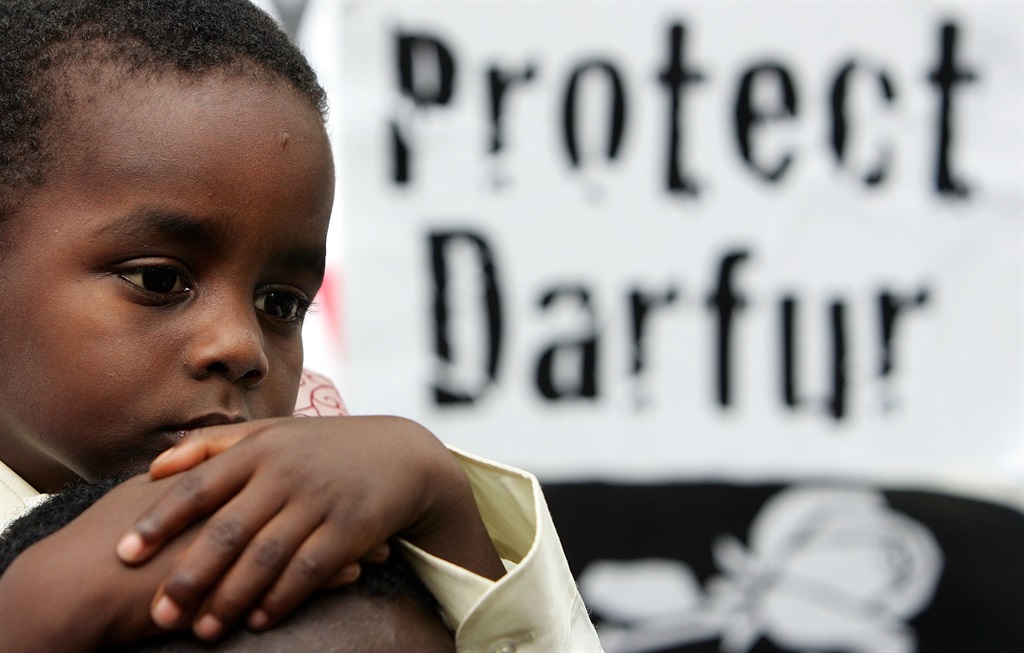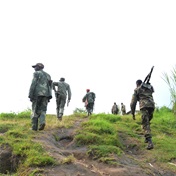
- Massacres and mass sexual assault in Darfur have raised fears of a renewed genocide during Sudan's civil war.
- The offshoot of the Janjaweed militia of the early 2000s, the RSF, is now in control of the region.
- An international peacekeeping force is unlikely, as is any other significant intervention.
More than two decades after the outbreak of war in Darfur, fears are growing that the world has abandoned its people as a new conflict ravages Sudan and the perpetrators of atrocities act with impunity.
The vast western region of Sudan was still suffering from the carnage that started in 2003 when a new war erupted last April between the army and the paramilitary Rapid Support Forces (RSF).
With the conflict has come a fresh litany of horrors including rampant sexual violence, ethnically motivated massacres and mass displacement.
According to a report by United Nations experts, seen by AFP, the RSF and allied militias have killed between 10 000 and 15 000 people in the West Darfur city of El Geneina alone -- at least five percent of its pre-war population.
Fighters "targeted the Massalit community" in what "may amount to war crimes and crimes against humanity", the report said.
The RSF, which emerged from the Janjaweed militia that former president Omar al-Bashir unleashed in Darfur, now controls four out of five state capitals in the vast region.
READ | SA is getting flak about its Hamas-Israel stance only as nobody cares about Africa
Civilians have been left to face what one Sudanese researcher called "their worst nightmare".
"The marauders who terrorised them for decades -- raped them, pillaged their lands and murdered them en masse for their ethnicity -- now rule," she told AFP from another country, requesting anonymity to protect family members still in Sudan.
On 31 October, the RSF took the Central Darfur state capital of Zalingei, allegedly committing atrocities including "mass murder, summary executions, arbitrary detention, sexual assault, torture and looting", human rights defender Mohamed Bera told AFP from another country where he has sought refuge.
"The same thing that happened to the Massalit in Geneina happened in Zalingei to the Fur," the ethnic group for which Darfur is named.
With a months-long communications blackout ongoing, the world has relied on local monitors like Bera's Awafy organisation, whose volunteers risk their lives to get news out.
According to an Awafy tally, at least 180 people were killed in a single attack on the Hasaheisa camp for internally displaced people (IDPs) near Zalingei, which the RSF said was "sheltering army soldiers".
UN experts who investigated the attack said at least 16 250 camp residents had again been "violently displaced".
Across Darfur, "many of the already existent three million IDPs" have been uprooted for a second or third time, according to the UN.
One tribal leader told AFP at least four camps in western Darfur had been "burned to the ground".
"These are the same memories, the same crimes as 2003, only more violent in some areas now," said Bera.
Two decades after Bashir mobilised the notorious Janjaweed in Darfur, the region's civilians have become trapped in the crossfire between the former allies, with the Sudanese army no saviour.
READ | At least one child dying every two hours in Sudan's Zamzam camp, charity reports
According to leading Sudan expert Alex de Waal, army chief Abdel Fattah al-Burhan has been "no less venal and brutal" than his erstwhile deputy, RSF commander Mohamed Hamdan Daglo.
Sudanese monitors, experts and the United Nations say the people of Darfur have been either directly targeted by the army or abandoned as troops retreat.
In at least three state capitals -- El Fasher, Nyala and El Daein -- UN experts determined the army was "not only unable to protect civilians but also used aerial bombing and heavy shelling in urban areas".
In December, US Secretary of State Antony Blinken held both the RSF and the army responsible for war crimes and crimes against humanity, referring to "haunting echoes of the genocide that began almost 20 years ago".
Yet while foreign capitals have paid lip service to Darfur's bloody history, analysts say they lack the political will to stop it from being repeated.
"We occasionally hear words of 'isn't this terrible,' but nothing more," veteran Darfur expert Eric Reeves told AFP, adding "Darfur was ignored for so long" that even a "re-acceleration of the genocide" has failed to trigger international action.
Jan Egeland, secretary general of the Norwegian Refugee Council (NRC), told AFP "we are living in an age of impunity" that will last as long as "Sudan is not seen as a strategic interest".
The International Criminal Court launched an investigation, but ousted autocrat Bashir has never been brought to justice, despite being indicted on charges of crimes against humanity and war crimes in 2009 and genocide a year later.
Both Reeves and de Waal say a UN or African Union protection force would almost certainly be vetoed, in light of competing global interests and the failure of past Darfur peacekeeping missions.
In El Fasher, the last state capital not under RSF control, civilians are paying the price, said veteran pro-democracy activist Amani Hamid Hassabo.
"There's no one here: the international community, regional actors, they're nowhere to be found, while thousands waste away in shelters with close to nothing coming in," she told AFP.
The United Nations -- which has limited its presence to day-long missions from neighbouring Chad -- says 80,000 people have flocked to El Fasher's makeshift shelters, while over half of Darfur faces "acute hunger".
NRC country director William Carter describes the current response as "a drop in the ocean", with "famine-like conditions" rapidly worsening.
In Zamzam camp, near El Fasher, at least one child dies every two hours, Doctors Without Borders said this week.
People "have been almost completely abandoned", the charity added.
El Fasher itself teems with competing militias, in what the UN calls "a fragile status quo".
Despite the lack of international action, Hassabo continues to brave "stray bullets everywhere" to get an hour of internet connection, determined to get news to the outside world.




 Publications
Publications
 Partners
Partners























